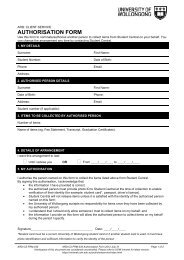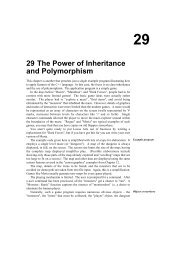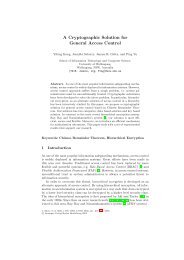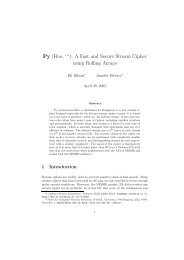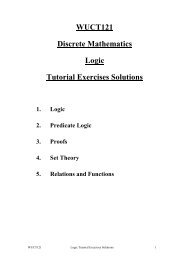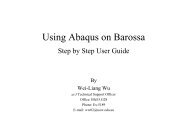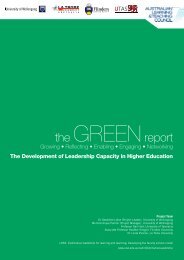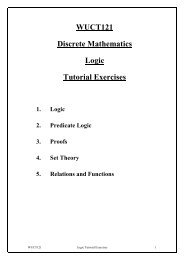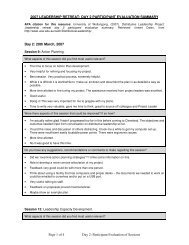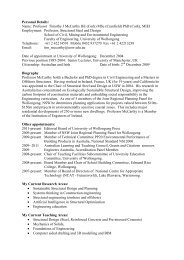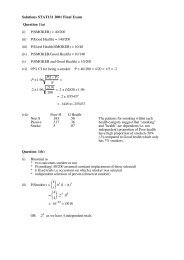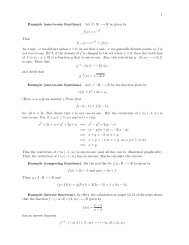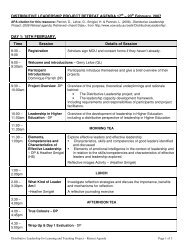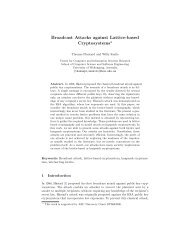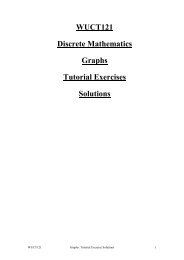india author m 1- a-nan - University of Wollongong
india author m 1- a-nan - University of Wollongong
india author m 1- a-nan - University of Wollongong
You also want an ePaper? Increase the reach of your titles
YUMPU automatically turns print PDFs into web optimized ePapers that Google loves.
eso<strong>nan</strong>ce into ‘still life’ descriptions and deals anti-romantically, like the Movement poets,<br />
with the poor. “Land’s End” presents the primeval power <strong>of</strong> the sea and the mystery <strong>of</strong> life.<br />
Surveys poems about cities and time, noting the despairing insignificance <strong>of</strong> <strong>of</strong> lovers before<br />
such immensities. Missing Person (1975) sketches an identity crisis <strong>of</strong> Kafkaesque quality<br />
with Confessional touches, echoes <strong>of</strong> a colonial problematic and the modern bourgeois<br />
dilemma set against a return to India.<br />
SHAHANE, VASANT A. "The Poetry <strong>of</strong> Adil Jussawala" in DWIVEDI, A.N ed. Studies in<br />
Contemporary Indo-English Verse Bareilly: Prakash Book Depot, 1984:23-28.<br />
Kailasam. T.P.<br />
BHATTA, S.K. "Kailasam's English Plays" in Perspectives on Indian Drama in English, edited<br />
by NAIK, M.K. & S. MOKASHI-PUNEKAR, 86-97. Madras: OUP, 1977.<br />
Kailasam's six published plays in English make an important contribution to Indian<br />
English drama, though this language is marred by excessive rhetoric and alliteration, and his<br />
blank verse is not consistently effective.<br />
MALAGI, R.A. "The Curse or Karna." In Perspectives on Indian Drama in English, edited by<br />
NAIK, M.K. & S. MOKASHI-PUNEKAR, 98-114. Madras: OUP, 1977.<br />
Almost all Kailasam's Kannada plays are social comedies, but his English plays are<br />
tragedies with mythological heroes. Kailasam wanders far from the Mahabharata in his best<br />
play, Karna, which reveals a supreme sense <strong>of</strong> dramatic form.<br />
Kalia, Mamta<br />
DUBEY, SURESH CHANDRA. "Roshen Alkazi and Mamta Kalia" in DWIVEDI, A.N.<br />
"Eves' Song: Contemporary English Verse by Indian Women" Studies in Contemporary Indo-<br />
English Verse: A Collection <strong>of</strong> Critical Essays. Vol. I Female Poets Bareilly: Prakash Book<br />
Depot, 1985: 201-16.<br />
Kan<strong>nan</strong>, Lakshmi<br />
RAY, LILA. "Lakshmi Kan<strong>nan</strong>" Commonwealth Quarterly 13 (1980):89-97.<br />
RAY, LILA. "Lakshmi Kan<strong>nan</strong>" in DWIVEDI, A.N. "Eves' Song: Contemporary English<br />
Verse by Indian Women" Studies in Contemporary Indo-English Verse: A Collection <strong>of</strong><br />
Critical Essays. Vol. I Female Poets Bareilly: Prakash Book Depot, 1985: 112-19.<br />
Karnad, Girish<br />
GOWDA, H.H. ANNIAH. "Indian Plays and Poems in English: Karnad's Tughlaq and<br />
Ramanujan's Relations" Literary Half-Yearly 14.1 (1973):3-10.<br />
NAIK, M.K. “The Limits <strong>of</strong> Human Power: A Comparative Study <strong>of</strong> Tughlaq and Caligula”<br />
in Studies in Indian English Literature New Delhi: Sterling, 1987: 136-145.<br />
RAMAMURTI, K.S. "Indian Drama in English with Special Reference to Tughlaq" Littcrit 8<br />
(1980):9-22.<br />
REDDY, P. BAYAPPA, "The Theatrical Representation <strong>of</strong> History: Girish Karnad's<br />
Tughlaq", Studies in Indian Writing in English with a Focus on Indian English Drama, New<br />
Delhi: Prestige Books, 1990: 44-51.



